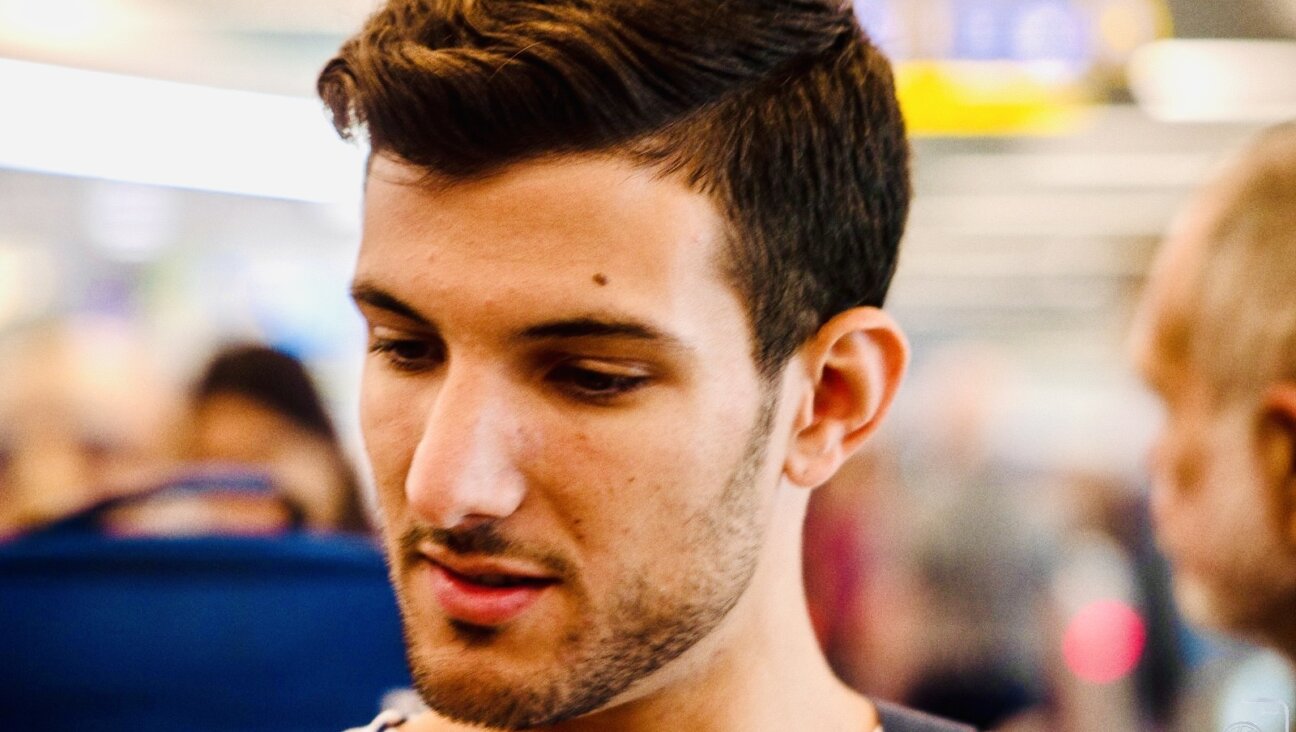Ariel Sharon’s Condition Worsens — in ‘Final Days’

Mournful Moment: Omri Sharon walks away from journalists at the hospital where his father, Ariel Sharon, is said to be in his ?final days.? Image by getty images
Ariel Sharon’s medical condition further deteriorated following a blood infection and multiple organ failure.
Prof. Ze’ev Rotstein, the director of Sheba Medical Center at Tel Hashomer, said at a press conference Friday morning that over the past 24 hours, doctors have observed a slow deterioration in the functioning of the former Israeli prime minister’s vital organs.
“He is receiving medication to stabilize the heart system and the blood vessels and antibiotics to treat the infection, as we have indication of a blood infection,” Rotstein said, according to Army Radio.
Asked by a reporter if Sharon, 85, was in his final days, Rotshein responded saying, “I personally feel so”.
Rotstein described Sharon’s decline as steady.
“He is comfortable at this time. To the best of our understanding he is not suffering, such that we do not have to take any action to prevent him suffering,” Rotstein said.
On Thursday, a prominent Israeli rabbi said praying for Sharon’s survival was pointless because his brain is inactive.
“We always need to pray for any Jew to wake up but if he regains consciousness, he is in a state of severe brain damage,” Rabbi Shlomo Aviner from Jerusalem told the religious Israeli news site Srugim.co.il. “So what good will waking up do him? No good.”
Sharon’s condition was listed as critical on Thursday following renal failure. Rotstein said the hospital did not plan to perform dialysis treatment.
Sharon has been comatose for almost eight years following a stroke.























